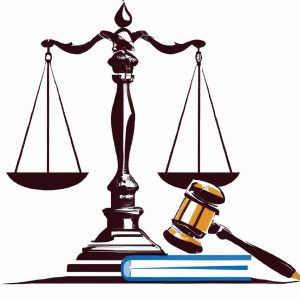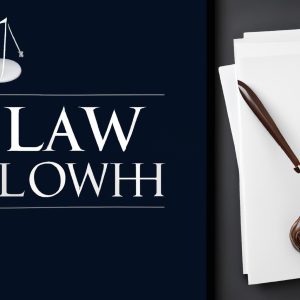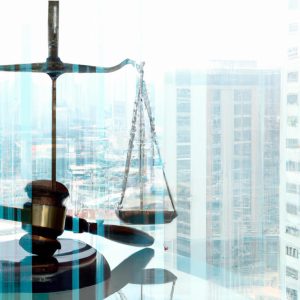As guardians of assets passed down through generations, estate property owners face unique challenges in safeguarding their legacies. Homeowners insurance for estate property is a critical safeguard against unforeseen risks that can threaten the integrity of these cherished holdings. At Morgan Legal Group in New York City, we understand the complexities of protecting estate property and offer comprehensive guidance to ensure that your legacy remains secure for generations to come. In this article, we will delve into the importance of homeowners insurance for estate property and provide valuable insights for navigating this intricate legal terrain.
Understanding the Importance of Homeowners Insurance for Estate Property
One critical aspect of managing estate properties is ensuring they are adequately protected by homeowners insurance. This type of insurance provides essential coverage for both the property itself and the belongings inside, safeguarding against potential risks and liabilities that may arise. Here are some key reasons why homeowners insurance is indispensable for estate properties:
- Property Protection: Homeowners insurance helps protect the estate property from various perils such as fire, theft, vandalism, and natural disasters.
- Liability Coverage: In the event of accidents or injuries that occur on the property, homeowners insurance can provide liability coverage to help cover legal expenses and medical bills.
- Peace of Mind: Having homeowners insurance in place offers peace of mind to estate property owners, knowing that their valuable assets are protected against unforeseen events.
| Key Coverage Areas | Details |
|---|---|
| Property Damage | Covers repairs or replacements for damage to the estate property. |
| Personal Property | Provides coverage for belongings inside the estate property. |
| Additional Living Expenses | Assists with temporary living arrangements if the estate property becomes uninhabitable. |
Given the unique nature and value of estate properties, it is essential to work with experienced legal professionals like Morgan Legal Group to ensure the homeowners insurance policy adequately meets the specific needs of the property. With their expertise in estate planning and property law, they can help navigate the complexities of homeowners insurance and provide tailored solutions to protect estate properties effectively.
Key Coverage Considerations for Protecting Your Estate Property
Ensuring proper coverage for your estate property is essential to safeguarding your assets and investments. Homeowners insurance for estate property offers a wide range of coverage options, but it’s important to carefully consider your specific needs to ensure adequate protection. Here are key coverage considerations to keep in mind:
- Property Damage: Make sure your policy includes coverage for structural damage, such as fire, vandalism, or natural disasters.
- Liability Protection: Liability coverage is crucial in case someone is injured on your property and decides to sue.
- Additional Structures: If your estate property includes additional structures like a pool house or guest house, ensure they are included in your coverage.
- Personal Belongings: Contents coverage protects your personal belongings in case of theft or damage.
By carefully considering these key coverage considerations, you can rest assured that your estate property is adequately protected. Consult with a reputable insurance provider to tailor a homeowners insurance policy that meets your unique needs and provides peace of mind for you and your loved ones.
Factors to Consider When Selecting a Homeowners Insurance Policy for Your Estate Property
When selecting a homeowners insurance policy for your estate property, there are several important factors to consider to ensure you have adequate coverage and protection. One key consideration is the coverage limits of the policy, which should be sufficient to cover the value of your estate property in the event of damage or loss. It is also important to review the specific perils covered by the policy, such as fire, theft, or natural disasters, to ensure you have comprehensive protection.
Additionally, you should carefully review the policy’s deductible, as well as any additional coverage options available, such as liability coverage or additional living expenses coverage. It is also recommended to assess the reputation and financial stability of the insurance company offering the policy to ensure they will be able to fulfill their obligations in the event of a claim. By carefully considering these factors, you can select a homeowners insurance policy that provides the necessary protection for your valuable estate property.
Expert Recommendations for Maximizing Coverage and Minimizing Risks
One key aspect of ensuring adequate coverage for your estate property is to carefully review the policy limits of your homeowners insurance. **It is crucial to make sure that your policy limits are enough to cover the full value of your property, including any valuable assets within the estate.** Inadequate coverage can leave you vulnerable in the event of a disaster or unforeseen circumstances, so it is wise to consult with your insurance provider to make any necessary adjustments.
Another important consideration for maximizing coverage and minimizing risks is to add additional coverage options to your homeowners insurance policy. Consider adding umbrella liability coverage to protect yourself against potential lawsuits or liability claims related to your estate property. Additionally, scheduled personal property coverage can provide added protection for high-value items within your estate. By taking these proactive steps to enhance your coverage, you can better safeguard your estate property and assets for the future.
| Coverage Option | Description |
|---|---|
| Umbrella Liability Coverage | Protects against lawsuits and liability claims |
| Scheduled Personal Property Coverage | Provides added protection for high-value items |
Q&A
Q: What exactly is homeowners insurance for estate property?
A: Homeowners insurance for estate property is a type of insurance that provides coverage for a property that is considered to be an estate, meaning it is a large, luxurious property with extensive grounds.
Q: What does homeowners insurance for estate property cover?
A: Homeowners insurance for estate property typically covers the dwelling itself, any additional structures on the property (such as a guest house or barn), personal property inside the home, liability protection, and coverage for additional living expenses in the event the property becomes uninhabitable.
Q: What makes homeowners insurance for estate property different from regular homeowners insurance?
A: Homeowners insurance for estate property is different from regular homeowners insurance in that it offers coverage for larger, more valuable properties with distinct features and amenities that regular homeowners insurance may not adequately cover.
Q: Are there any additional coverages that estate homeowners should consider?
A: Estate homeowners may want to consider additional coverages such as coverage for valuable personal property items like artwork or jewelry, coverage for events held on the property, and coverage for landscaping and grounds maintenance.
Q: How can estate homeowners find the right insurance policy for their property?
A: Estate homeowners can find the right insurance policy for their property by working with a knowledgeable insurance agent who specializes in estate properties and can help tailor a policy to fit their unique needs and requirements.
In Retrospect
In conclusion, having homeowners insurance for estate property is crucial in protecting your investment and providing peace of mind. By understanding the unique needs of estate properties and selecting the right coverage, you can ensure that your home and belongings are safeguarded against unexpected events. Don’t wait until it’s too late – invest in homeowners insurance for your estate property today and enjoy the security and protection it brings. Remember, home is where the heart is, so make sure yours is well-protected.





